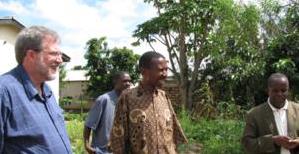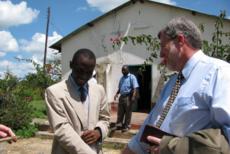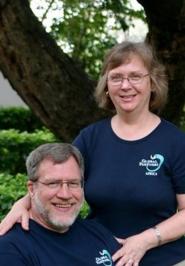
By Austin Pryor for Sound Mind Investing
www.cbn.orgCBN.com – America's largest electric utility. Our largest independent steel company. The largest gas company. The country's largest business monopoly. The New York Stock Exchange. And the Bank of International Settlements.
In 1923, the presidents of these six prestigious institutions came together in Chicago for a meeting of many of the world's most successful financiers. Jesse Livermore, Wall Street's most famous speculator of the day, was also in attendance. They were all men of great wealth, stature, and influence. Yet, within 25 years, these seven men had discovered what we all learn eventually — the world just doesn't offer enough. One man had gone to prison, another was insane. Two died penniless. Three were suicides. All had mastered the art of making a living, but none had learned how to live.
Now, as then, quality of life is difficult to come by — even though we live in the most affluent society in all of history.
Why? I believe it's because we have moved away from the Judeo-Christian ethic on which our nation was founded. Consider the differences between contemporary society's prevailing attitudes toward life, work, and investing in contrast with the historical biblical view of these same areas. To begin with, society (and government) often teach that we came into existence strictly by chance. If that is so, then we are in essence just animals seeking to fulfill our needs.
Now, reason from there into the financial and work areas of life:
1. The goal of work is to do whatever is necessary to achieve success. Indicators of success are the acquisition of money, possessions, and influence.
2. Because life is short, lifestyles are geared to immediate gratification — gaining as much pleasure as possible as quickly as possible. This leads to higher consumption now and less saving for the future. A high level of debt and continuous use of credit is considered an acceptable means to this end.
3. Investing is geared to get-rich-quick strategies with a short-term time horizon. The recessionary phases of economic cycles are dreaded and pose a constant threat to economic survival.
4. Because there is no ultimate purpose or morality, we are free to invent our own. Ethics are relative and personal. They generally play little, if any, role in making spending or investing decisions.
Now, contrast these views with a biblical perspective that maintains, as a foundational principle, that we came into existence through the creative hand of God. Therefore, we are essentially spirit beings with an eternal purpose. It follows that:
1. The goal of work is to use our God-given talents to serve others or fulfill a calling. Indicators of success are peace with God, love for others, and contentment.
2. Because eternal life is possible, a lifestyle focused on eternal issues is appropriate. This leads to a willingness to accept deferred gratification, which means less consumption now and more saving for the future — and for giving to Christian ministry. High levels of debt and continuous use of credit are discouraged as an unnatural and enslaving lifestyle.
3. Investing is geared to slow-but-sure strategies with a long-term time horizon. Economic cycles are prepared for through a strategy of saving and diversification.
4. Because God has a moral purpose for His creation, a law of sowing and reaping prevails. One's ethical outlook is based on biblical wisdom and plays an important role in making spending and investing decisions.
Jesus is almost universally regarded as the wisest moral teacher of all time, even by millions who don't consider themselves Christians. At the end of what we call "The Sermon on the Mount," He said this:
Everyone who hears these words of mine and does not put them into practice is like a foolish man who built his house on sand. The rain came down, the streams rose, and the winds blew and beat against that house, and it fell with a great crash.
Although many in our society may choose to ignore His words, you and I still have the choice of preparing for the inevitable storms Jesus spoke of by following biblical teaching.
Take a good look around you. Rarely has the truth of the old hymn been so obvious: "On Christ, the solid Rock, I stand. All other ground is sinking sand, all other ground is sinking sand."
Sound Mind Investing exists to help individuals understand and apply biblically-based principles for making spending and investing decisions in order that their future financial security would be strengthened, and their giving to worldwide missionary efforts for the cause of Christ would accelerate. In other words, we want to help you have more so that you can give more.

















